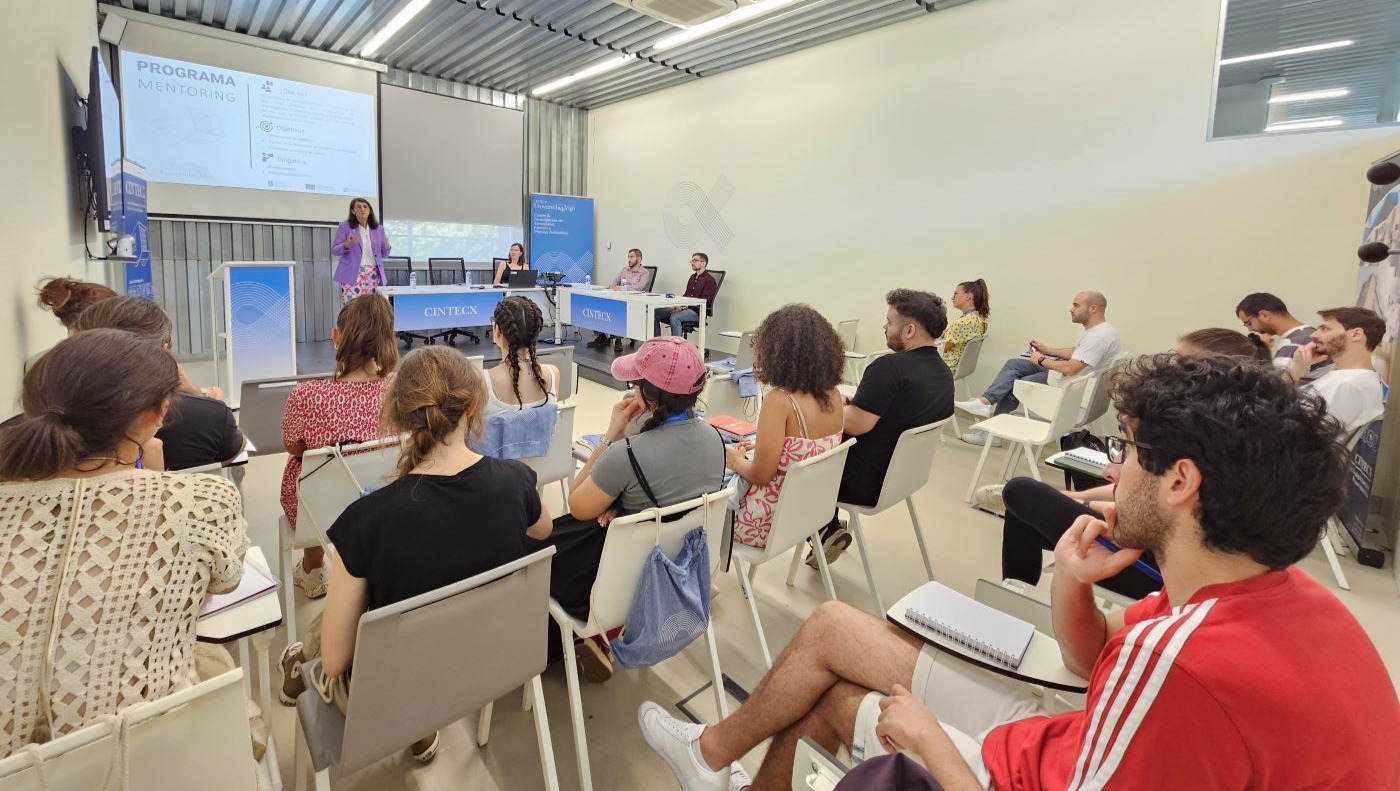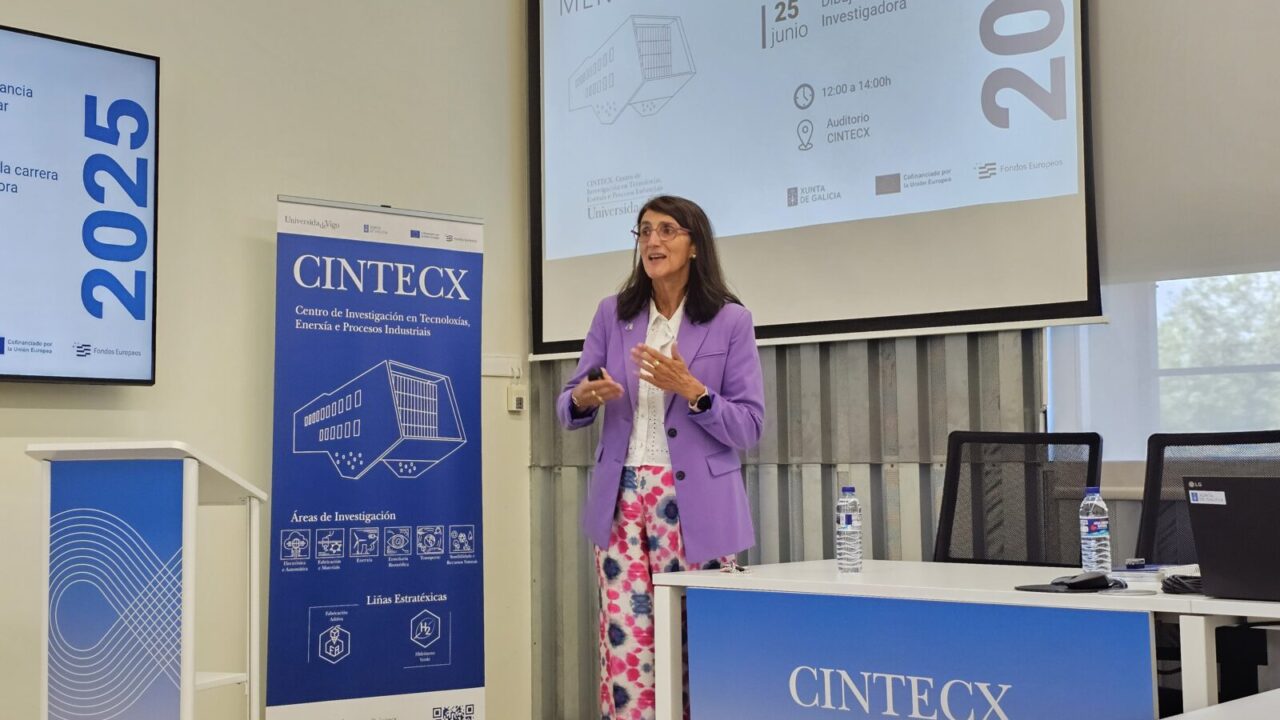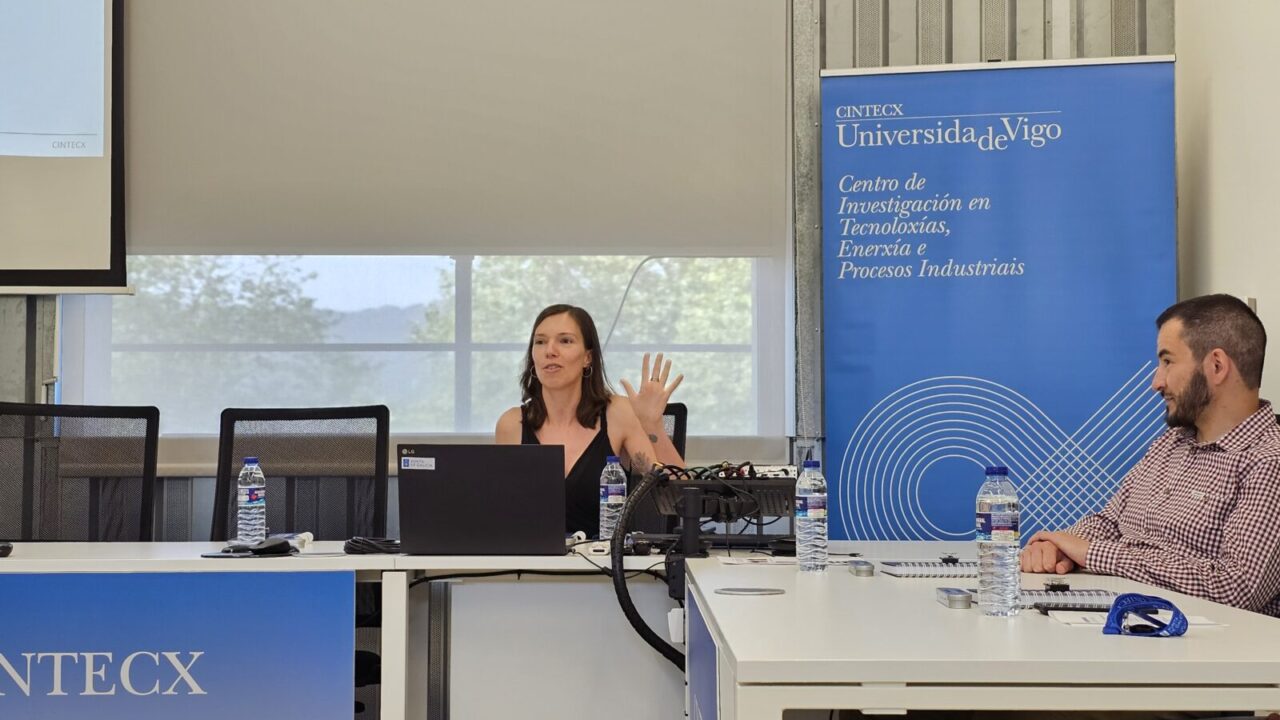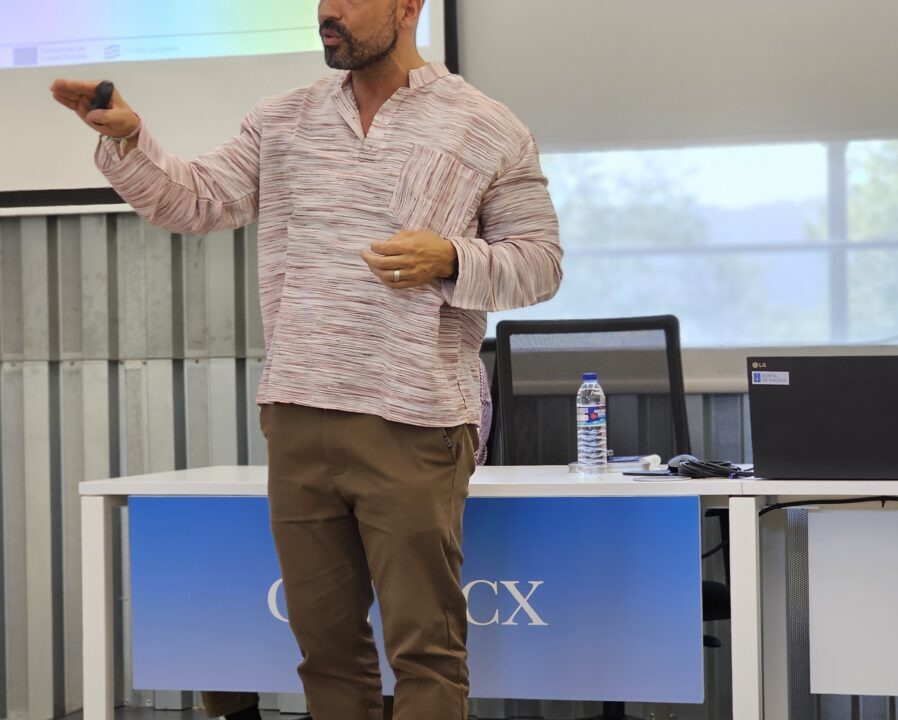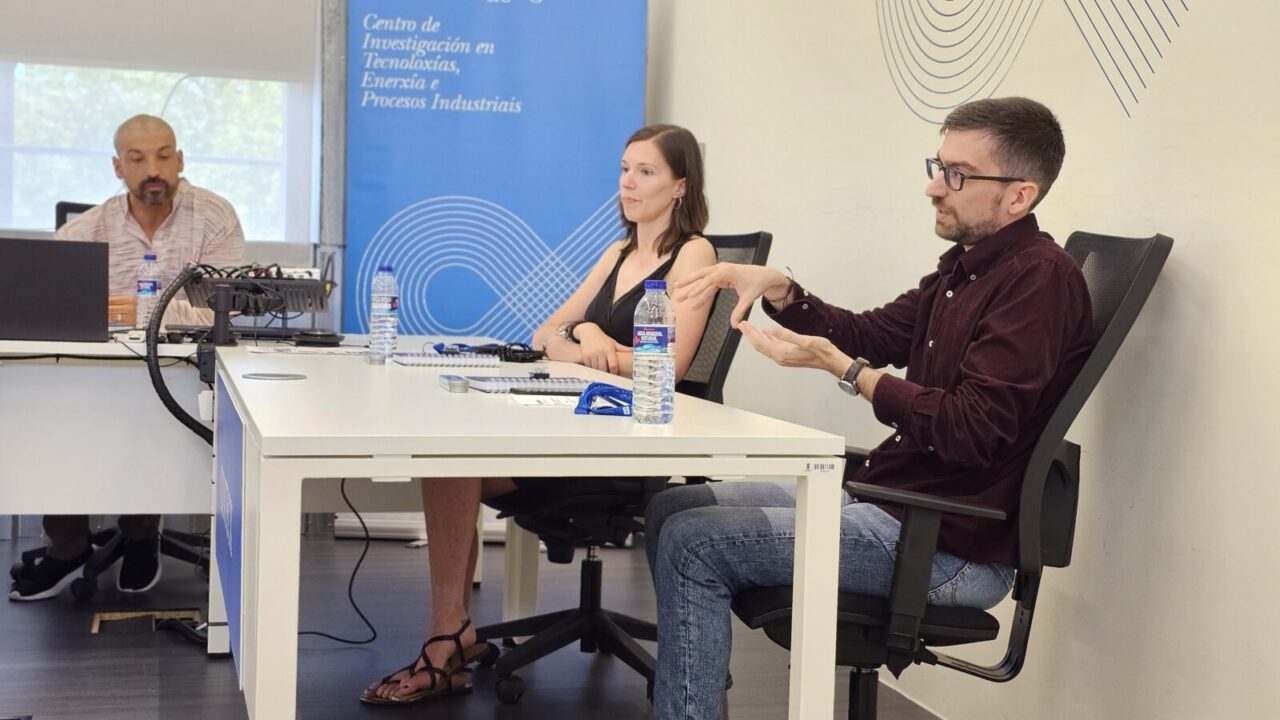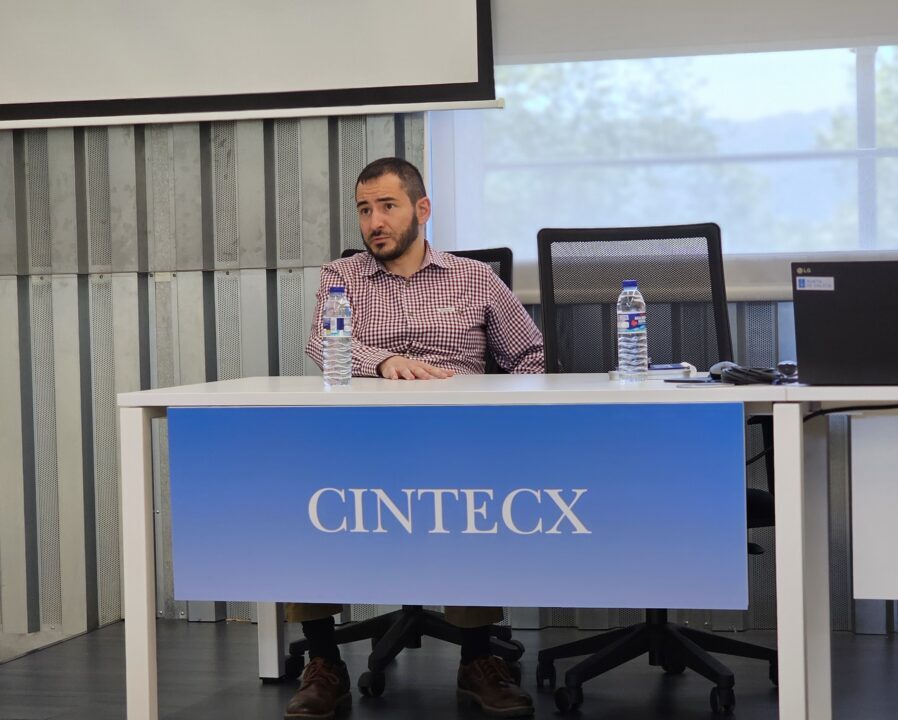Twenty young researchers are participating in the new edition of the mentorship program run by the Research Center for Technology, Energy and Industrial Processes (Cintecx) at the University of Vigo. This initiative aims to provide predoctoral and postdoctoral researchers —with a maximum of two years of experience— with guidance and support to address the common doubts that arise at the beginning of a research career, through mentorship from more senior profiles who act as guides.
A Program That Ensures “Support and Professional Guidance”
The various activities began this Wednesday with the session “The Importance of Publishing”, which was opened by the center’s director, Ángeles Sanromán. She highlighted that “one of Cintecx’s distinctive features is the high presence of young researchers who actively participate in its working groups.” In this regard, she noted that the center currently has 44 predoctoral researchers working on their theses, representing nearly 19% of the center’s research staff. “This young and developing base makes the center a dynamic space of constant knowledge transfer, where it is essential to ensure not only scientific excellence but also professional support and guidance throughout the research career.”
In this context, Sanromán explained that strengthening the training of early-career researchers is not only a formative need but also a strategic commitment to ensure generational renewal, talent sustainability, and the consolidation of impactful scientific careers. “Led by young researchers who are in the process of stabilizing their careers or who have recently secured permanent university positions, these sessions offer a close, current perspective aligned with the concerns of those beginning or seeking to consolidate their research careers,” the director added.
During this first session, participants had the opportunity to delve into all the key aspects of publishing: where to publish, steps before writing, article design, editorial process and dissemination, publication quality indices, writing guidelines, and ethical considerations.
The mentorship team, composed of researchers from the center, shared their experiences through various presentations. Researcher Raquel Pérez Orozco gave a talk on the steps to take before writing an article. Then, Alejandro Gómez Yepes, researcher and deputy director of Cintecx, covered the elements to consider in the editorial and dissemination process, followed by researcher Iago Pozo, who focused on the international perspective of publications and projects, encouraging participants and noting that “the path is long and one must not get discouraged.”
The session concluded with a roundtable discussion moderated by researcher Mario Soilán, where various issues related to the importance of publishing were addressed.
Drawing the Research Career
The next session, “Drawing the Research Career”, is scheduled for next Wednesday, June 25. In this session, the mentorship team will consist of Ignacio Pérez, Adrián Cabarcos, and Aida Díez, who will guide participants through all the steps of a research career from the beginning of the thesis: obtaining predoctoral funding, undertaking research stays, meeting deadlines, faculty accreditation, and postdoctoral fellowships. Once again, the mentors will share their professional experiences and trajectories, offering advice on the skills to acquire at each stage and the funding opportunities available.
“These mentorship sessions reinforce Cintecx’s commitment to training that goes beyond the laboratory — training aimed at helping our youth face the challenges of a research career,” Sanromán emphasized.
Leading Mentors to Promote Female Talent
On March 13, CINTECX hosted the session “Women Who Lead”, organized jointly with the AIMEN Technology Center. This event served as a prelude to the mentorship program and focused on providing experiences to help promote the continuity of women’s research careers in the technological and industrial fields.
During the session, the director of CINTECX presented the center’s mentorship program and emphasized that through events like this, “where we benefit from the experience of women with long-standing careers, we can draw lessons and insights that will help other early-career female researchers continue their work and have role models to look up to.”

